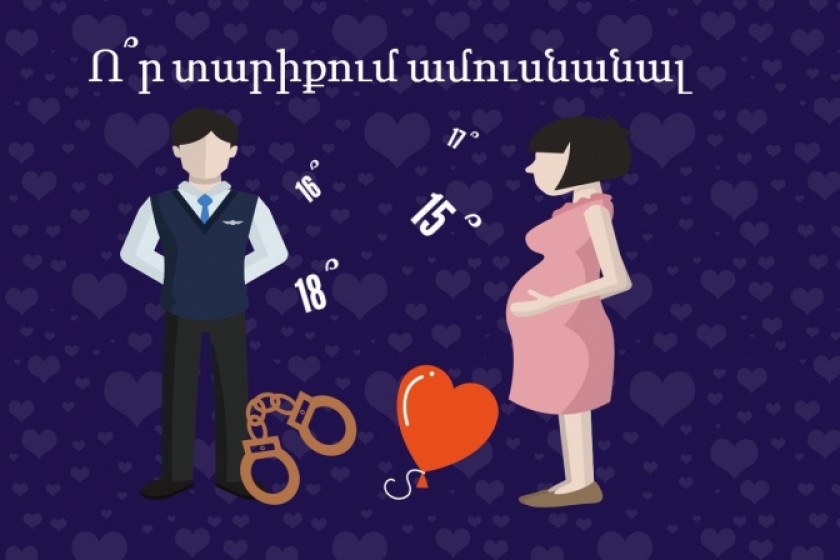
Underage Marriage in Armenia: Is Criminal Prosecution a Fair Solution?
In November 2014, 19 year-old Arman married 14 year-old Karineh.
Arman and Karineh (not their real names) are Yezidis. They met, started to date, and fell in love.
Karineh lived with her parents in Shirak Province. Arman is from Armavir. The parents gave their permission for the two to marry.
Karineh became pregnant and in September 2015 was found to be in her 20th week when she went to the Armavir Medical Center.
The hospital immediately contacted the police and Arman was charged with having sex with a minor. According to Article 141 of Armenia’s Criminal Code - “Sexual intercourse or other sexual acts with a person obviously under 16, by a person who has reached 18 years of age” is a crime.
Armavir’s Provincial Court found Arman guilty and sentenced him to four years imprisonment. Given that Karineh pleaded with the court to go easy on Arman, the young man was conditionally released from serving time and was given a two year probationary period.
Such cases frequently make it to the courts and those so charged usually do not have legal representation. Most are found guilty but, just like in the case of Arman, they are released on probation.
Astineh Apitonyan, who heads the Department to Defend the Rights of Families, Women and Children at the Armavir Provincial Government, told Hetq that she has no data on marriages involving minors. Apitonyan did say that her department starts working with underage girls when they stop attending school.
“We start by explaining the law to the families involved and that marriage between minors is proscribed. Most such marriages are the result of not knowing the law. When the law is explained, families hold back from organizing such marriages,” says Apitonyan.
Apitonyan believes that underage marriage in Armenia is not frowned upon by the Yezidi minority and that it’s a part of their national tradition.
In Armavir, the vast majority of underage marriages take place within the Yezidi community and other national minorities living in rural areas.
Apitonyan says that, by law, a caretaker is appointed when a child is born to an underage couple. Often, the caretaker is an adult family member.
While Apitonyan believes that jailing a man who has married a minor is a bit harsh, she sees no viable alternative to dissuade the continuance of such marriages in the future.
Yezidi lawyer Amo Sharoyan doesn’t agree that underage marriage is a Yezidi national custom.
“You know that two years ago there was some commotion about the issue of underage marriage. I proposed that the law be changed so that the minimum age of marriage, with parental consent, is set at 17. If, however, people get married at 16 and have started a family, we should try to assist that family and not destroy it. Thus, we shouldn’t criminally prosecute people but rather request the assistance of village councils in order to monitor such newly-married couples and their families,” says Sharoyan.
The lawyer realizes that kids today, in general, are sexually active at a younger age than years ago.
“A 14 or 15 year-old teenager today is like a 16-17 year-old of twenty years ago. They want to experience sex much quicker. Nevertheless, I am for a 17 year minimum age for girls and 18 years for boys when it comes to getting married,” says Sharoyan.
 Videos
Videos Photos
Photos
Write a comment